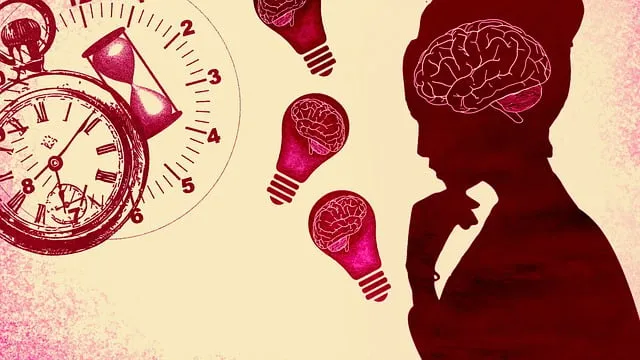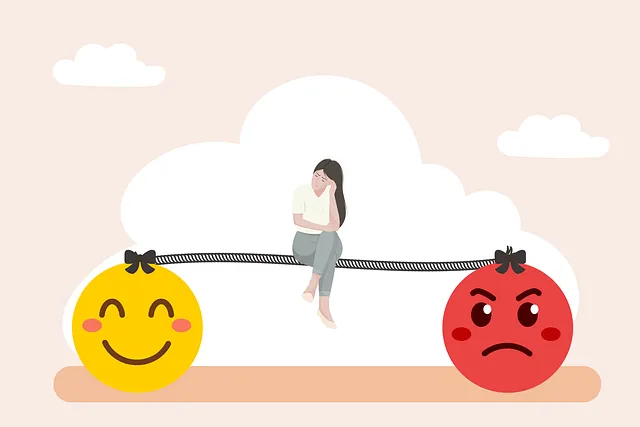The stigma surrounding mental illness acts as a significant barrier to individuals seeking help and proper treatment. Kaiser Permanente addresses this through awareness promotion, accessible resources, and support for early intervention, using strategies like positive thinking and education on depression prevention. Their innovative programs and services reduce stigma, emphasizing that mental illness is a common human experience. By fostering compassion and understanding, they empower individuals to seek help without judgment. Comprehensive strategies, including education and open discussions, are crucial in normalizing mental wellness conversations and creating an accepting society for those facing mental health challenges.
Mental illness stigma remains a significant barrier to effective treatment and recovery. This article explores strategies to reduce this societal burden, drawing insights from innovative approaches like those implemented by Kaiser Permanente, a healthcare leader in mental health services. We delve into the profound impact of stigma on individual well-being and society at large, offering practical tips for challenging stigma in daily interactions. By understanding its roots and effects, we can foster a more inclusive and supportive environment for those facing mental health challenges, ultimately enhancing their journey towards superior mental health outcomes.
- Understanding Stigma and Its Impact on Mental Health Treatment
- Kaiser Permanente's Approach to Reducing Mental Illness Stigma
- Effective Strategies for Challenging Stigma in Everyday Life
Understanding Stigma and Its Impact on Mental Health Treatment

Stigma surrounding mental illness is a significant barrier to individuals seeking help and receiving proper treatment. It often manifests as negative attitudes, beliefs, or stereotypes about people with mental health conditions, leading to discrimination and social exclusion. This perception can have profound effects on an individual’s well-being, encouraging feelings of shame, isolation, and even suicidal ideation. Many suffer in silence, unwilling to disclose their struggles due to fear of judgment or loss of respect from peers and loved ones.
Kaiser Permanente mental health services aim to combat this by promoting awareness and fostering a culture of understanding and acceptance. By providing accessible resources and support, they encourage early intervention and treatment. Positive thinking, conflict resolution techniques, and education on depression prevention are key strategies employed to reduce stigma. These efforts contribute to breaking down the walls that isolate those with mental health issues, paving the way for improved access to care and ultimately better outcomes.
Kaiser Permanente's Approach to Reducing Mental Illness Stigma

Kaiser Permanente has been a trailblazer in mental health care, prioritizing stigma reduction through innovative programs and services. Their comprehensive approach focuses on educating both patients and the wider community about mental illness, emphasizing that it’s a common human experience rather than a personal weakness. This shift in perspective fosters a culture of compassion and understanding.
The organization actively promotes inner strength development and anxiety relief through evidence-based therapies, support groups, and accessible communication strategies. By integrating these initiatives into their healthcare model, Kaiser Permanente empowers individuals to seek help without fear of judgment or discrimination. Their consistent message reinforces that mental wellness is integral to overall health, encouraging early intervention and ongoing care for a happier, healthier society.
Effective Strategies for Challenging Stigma in Everyday Life

Mental illness stigma reduction requires a multifaceted approach, and challenging stigma in everyday life starts with education and awareness. Individuals can play a significant role in fostering understanding by openly discussing mental health issues within their communities. Sharing personal stories or encouraging friends and family to do the same can help normalize conversations about mental wellness. This shift in narrative is a powerful tool against stigma.
Additionally, leveraging resources offered by organizations like Kaiser Permanente’s mental health services can make a substantial difference. These initiatives often include comprehensive programs designed to educate both the general public and mental health professionals. Risk assessment tools and risk management planning, coupled with healthcare provider cultural competency training, are essential components in challenging stigma at various levels of care. By integrating these strategies into daily interactions, individuals can contribute to a more accepting society for those facing mental health challenges.
Mental illness stigma, a significant barrier to treatment and recovery, can be effectively challenged through education and understanding. Kaiser Permanente’s innovative approach, focusing on community engagement and open dialogue, serves as a model for reducing stigma in healthcare. By implementing practical strategies discussed in this article—from personal conversations to policy advocacy—we can foster an environment of acceptance and support, ultimately enhancing mental health outcomes for all. With continued efforts, we can break down the walls of stigma and elevate mental health to its superior place in our society.






